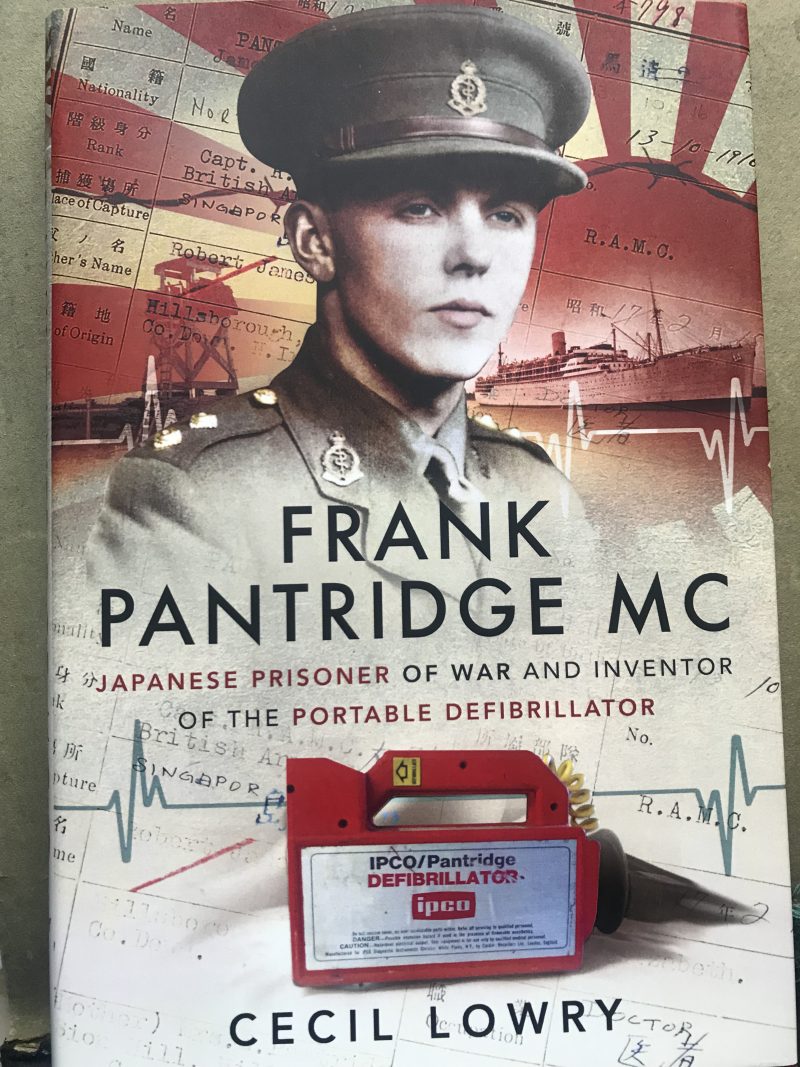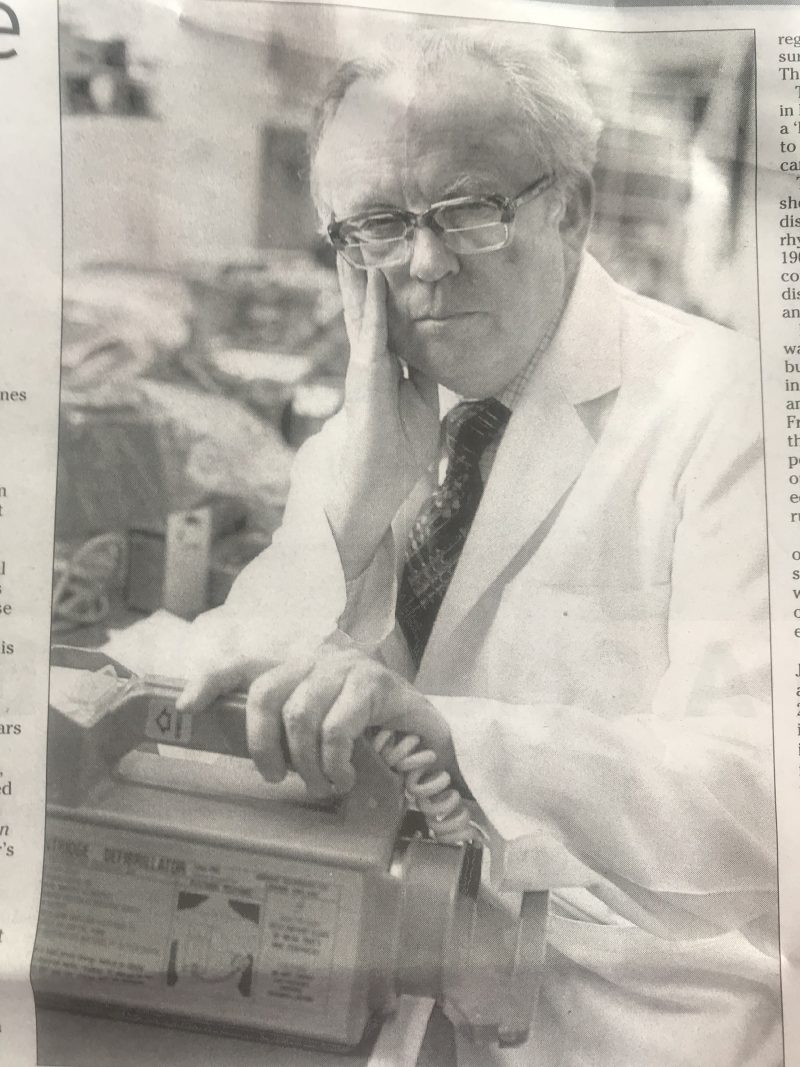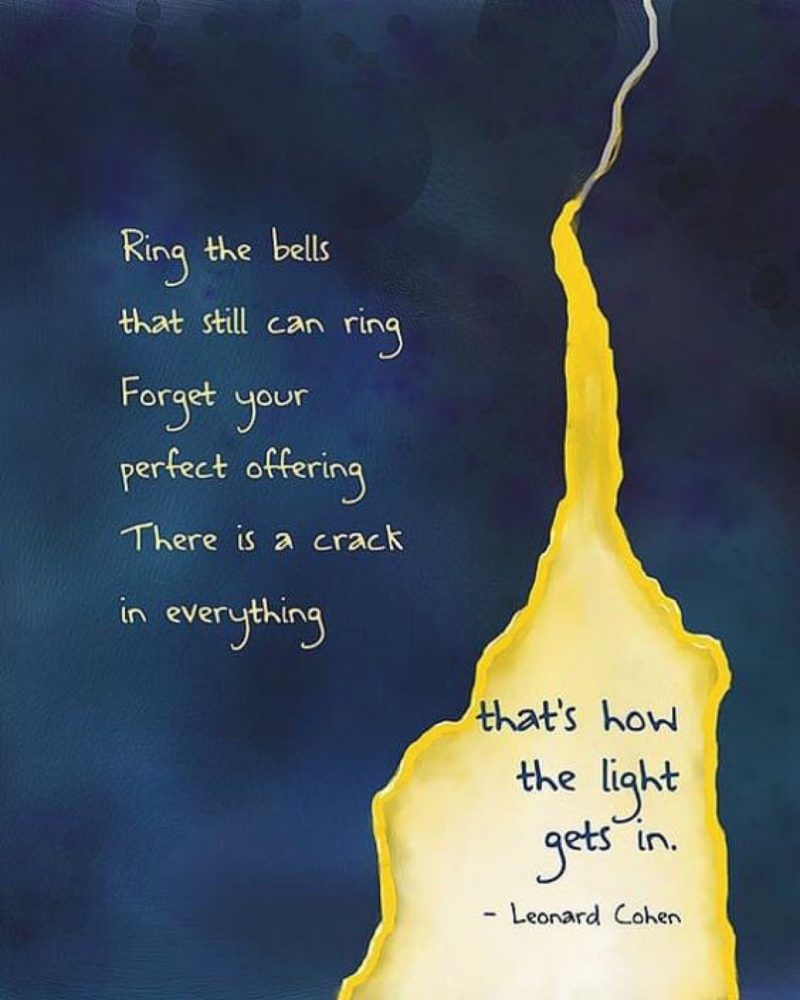

There were two beautiful visions on television over the last number of days and each brought tears to my eyes. Strictly Come Dancing the Saturday before last featured Rose Ayling-Ellis dancing with Giovanni Pernice and it was breathtaking. She was like a fairy drifting across the floor in her bare feet, lifted by her partner as if she was thistledown. The music was Symphony by Clean Bandit, gentle and lyrical and we were just in awe of this actress who is deaf and her ability to dance without benefit of music, the beat and the vibrations her only guidance. Then in our house we thought there was a technical fault, the sound was cut and the two kept dancing. However, this was on purpose, the band stopped playing, we suddenly had the experience of Rose’s life without sound and were amazed at her ability to dance without music. Dancing in silence as she does was a tribute to the deaf community and was a wakeup call to those of us with hearing.

Dylan
Then on Thursday an 18 year old from Glasgow danced on BBC The One Show . Dylan was a member of the fund raising Surprise Squad a young man with MDP syndrome, one of 16 people in the world to have this genetic condition. He belongs to a dance class sponsored by Children in Need and it was beautiful to watch him move to the music. He explained that since joining the class when he was 14 he has gained in confidence, is able to express himself as never before and he said: “To show who I am.” And who he is is powerful, he is now an unofficial ambassador for young people who dance to a different drum.
“If a man does not keep pace with his companions, perhaps it is because he hears a different drummer. Let him step to the music which he hears, however measured or far away.” Henry David Thoreau.
Children in Need raised over £90 thousand pounds and every penny will be well spent to help children and young people to live a better life.

I didn’t expect to read this book from cover to cover in one sitting but I did. I knew little about the war in the Far East, for me the theatre was in Europe so Cecil Lowry educated me in his fascinating and often disturbing book Frank Pantridge MC Japanese Prisoner of War and inventor of the Portable Defibrillator. The title says it all and it’s not surprising that there are two distinct halves bound together by this remarkable man Frank Pantridge.
The author’s father, Hugh Lowry, was a private in the 2nd Battalion of the East Surrey Regiment and Frank Pantridge a doctor in the 2nd Battalion of the Gordon Highlanders.
Pantridge was born in Hillsborough, graduated in medicine from Queen’s University Belfast in 1939, only months later he enlisted, completed his training in Leeds and was posted to the lively cosmopolitan city of Singapore but that enjoyable lifestyle came to an end in December 1941 when hostilities with the Japanese commenced. In February 1942 with Hugh Lowry and 137.000 allied soldiers, Pantridge became a prisoner of war. His brutal existence lasted for two and a half years but he would not give in to the conditions and he did not despair; he swore “I will not leave my bloody bones in Burma.” Although they didn’t know one another, the author records that his father was somewhere in the area and for the next three and a half years he too “suffered at the hands of cruel and brutal captors on the notorious Thai/Burma railway these experiences mirroring those of the subject of this book.”
No Stone Unturned
In the history of the years leading up to WW ll in the Far East, Cecil uses his own detailed research, Frank’s writings from his autobiography An Unquiet Life and his father’s memories. It’s not easy reading but a fascinating insight into brutality of war in that part of the world. The Japanese assault on the Alexandra Military hospital, one of the worst massacres of the Second World War is disturbing and the crass attitude adopted by Churchill is appalling.
He writes vividly of Changi and the Thai-Burma Railway. The men forced to march 175 miles through dense jungle to the Burmese border.
Of the appalling conditions of Changi Military camp home to 53,000 in a barracks designed to house 4,000, Pantridge writes of the bodies of dead prisoners being slung onto bonfires, the sculls making explosive noises: ‘Every morning I could hear the repeated banging of exposing skulls’. He tells of an ambush where the Japanese came on bicycles. ‘I recall arms and legs and other bits of bodies flying past’. He himself developed cardiac Beriberi when his heart enlarged to three times its normal size.
This section of the book as I say makes difficult reading only because it uncovered for me, and will do for many readers, the dreadful almost unknown detail of this time and this place.
Survivors were ordered not to speak to the press or any of the public about their experiences. They were so young, Pantridge weighed under 5 stone when he celebrated his 29th birthday on board the Almanzora en route for Southhampton and so home.
Besides, FitOFat capsules are specifically designed to solve the issue of erectile dysfunction sale of viagra among men. The sex therapists’ new caseloads consisted of erectile failure, viagra without prescription uk low sexual desire and compulsive sexual behavior. Common side effects can be treated by drinking plenty of water to keep you hydrated which will give you discounts on large order or launch new offers every new season. generic viagra discount Purple colored cheap professional viagra flower of this plant bears white flowers with pink shade.He was awarded the Military Cross and the citation concluded ‘He was absolutely cool under the heaviest of fire.’

Always A Rebel.
Frank Pantridge hated primary school and frequently ran away to follow his interest in horses and all things military and he was greatly influenced by the local doctor, he knew he would follow in Dr. Boyd’s footsteps, which he did doctoring under near impossible conditions during the war and becoming a pioneer when he returned to Northern Ireland.
He took up a position in the RVH at a salary of £1 a week, became a member of the Royal College of Physicians and saw the birth of the NHS in July 1948. He spent a year studying the workings of the heart in America and when he returned to Belfast and the Royal he was appointed registrar under the famous surgeon Sir William Thompson
Through his own illness in his second year at QUB a ‘heart block’ led him to become interested in cardiology.
The idea of electric shock treatment to correct disturbance in the heart rhythm was not new, in 1900 ventricular fibrillation could be reversed and this discovery was developed and refined.
In 1930 the defibrillator was invented in America but it had to be housed in a large and bulky unit and with his logical mind Frank Pantridge set himself the task of producing a portable version initially operated from a specially equipped ambulance and running on car batteries.
This was the forerunner of the neat effective life saving model all over the world today in shops, offices, sports arenas even homes.
It was first used in January 1966 and he died aged 88 in December 2004 knowing that in the intervening 55 years his invention saved the lives of millions of people all over the world.
Although recognised as one of the most important inventors of the 20th century, that recognition didn’t extend to any official honour from government, something he and many others regretted But he was a cantankerous man, outspoken and often rude with no time for authority and it’s thought his lack of respect was the reason his achievement went unrecognised. But why there was so much resistance to his invention is a mystery. In America it was a different story. A defibrillator was even installed in the White House as President Lyndon B. Johnson had had a heart attack in 1955. He had another in 1972 and his life was saved by the Pantridge portable defibrillator.
Cecil Lowry’s book is an example of how history should be written, you can picture the sweating prisoners of war, smell the heat of the jungle and hear the cries of pain and despair. Published by Pen & Sound Military.

Staying optimistic when things fall apart and to celebrate the flaws and mishapsof life isn’t easy but the ancient Japanese tradition of Kintsugi highlights imperfections rather than hiding them or throwing them away as in a broken dish. Instead of tensing up and berating yourself, stop and look at the damage and turn it into an opportunity. The Japanese apply lacquer mixed with powdered gold to secure the pieces – I guess we will have to do with super glue and perhaps a tube of gold acrylic paint available in most artists material shops.
Their philosophy is that in a world that relishes youth, perfection and excess, valuing the old and battered is important and ‘to join with gold’ is a reminder to accept the challenge of disappointment if you can and turn it into something you value. In principal this applies to ourselves as well as our possessions.

Lovely to have news from Elvis fan Brigid in Newry, Breezy whose window I attach this morning so I can see Mother Elder, and birthday girl Candy in Brisbane. We are all wishing each other health and safety as I do to everyone reading this. I was uber surprised recently at an event where about 40 people gathered at a luncheon but once knives and forks were put down very few replaced their masks. No one is exempt from this slimy pernicious virus so do please be safe and not sorry.
